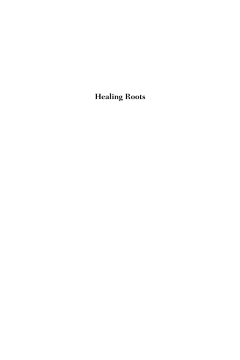
Additional Information
Book Details
Abstract
Umhlonyane, also known as Artemisia afra, is one of the oldest and best-documented indigenous medicines in South Africa. This bush, which grows wild throughout the sub-Saharan region, smells and tastes like “medicine,” thus easily making its way into people’s lives and becoming the choice of everyday healing for Xhosa healer-diviners and Rastafarian herbalists. This “natural” remedy has recently sparked curiosity as scientists search for new molecules against a tuberculosis pandemic while hoping to recognize indigenous medicine. Laplante follows umhlonyane on its trails and trials of becoming a biopharmaceutical — from the “open air” to controlled environments — learning from the plant and from the people who use it with hopes in healing.
Julie Laplante is Associate Professor of Anthropology in the School of Sociological and Anthropological Studies at the University of Ottawa. Senior research fellow at the Max Planck Institute für etnologische forschung (2006-2010), she has published in numerous journals and is the author of Pouvoir Guérir. Médecines autochtones et humanitaires (Power/Ability to Heal. Indigenous and humanitarian medicine).
“Overall, Laplante’s Healing Roots, focusing on the tensions between the biomedical and traditional healing–based ways of making a medicine is an informative and important contribution to the literature [of] intrinsic value in the classroom, primarily for graduate-level students with specific interests in South Africa and the crossroads of ethnopharmacology and biomedicine.” • Medical Anthropology Quarterly
“Healing Roots should be compulsory reading for students of pharmacology in Africa. That statement summarizes the wealth of information and in-depth analysis contained in a book that set out to, and succeeded in articulating the dissonance that exists in attempts to validate indigenous medicine using completely alien and super-imposed standards.” • African Studies Quarterly
“This book represents an interesting addition to the emerging series of articles and books dedicated to the study of the interactions between Western and African systems of knowledge…[It] is very provocative and will no doubt provoke many intellectual debates.” • Gilles Bibeau, Université de Montréal
